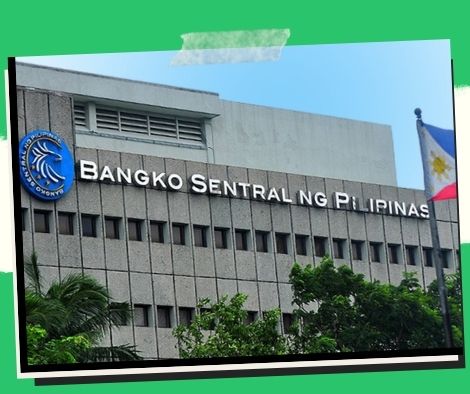
BSP’s chief examines corporate exposure to risks and measures
To assess the private sector’s exposure to external risks and how it affects the local financial system and economy, monetary authorities are eager to fill in data gaps on corporates’ international investments and borrowings.
Felipe Medalla, the governor of Bangko Sentral ng Pilipinas (BSP), said in a briefing here on Monday that the central bank needs a clear picture of the risks that local corporations are exposed to formulate the right policies to prevent this from having an impact on the domestic environment.
The Philippines is a very legalistic nation, and in my opinion, our laws do not restrict us from asking them such questions—after all, we question households all the time, right?—because they are routine.
Both public and private businesses must report their foreign debts to the BSP.
For starters, the central bank must first give the go-ahead for private companies to borrow money in foreign currencies insured by the public sector.
Those without public sector guarantees do not require prior clearance, but if they plan to pay with foreign currency obtained from domestic banks, they must notify the central bank and register with the BSP.
Despite this, BSP Senior Assistant Governor Johnny Noe Ravalo stated at the same briefing that they are still awaiting the publication of some implementing rules before receiving this information from the conglomerate.
Even if laws already govern this, Medalla stated, “we are not sure that our data on their exposure and their investment abroad is complete.”
He continued, “I’d be lying if I told you that I’m satisfied with our current level of (data that the central bank has)” as the BSP is “exerting efforts so that we’ll be able to catch up on the data gaps here.”
“We genuinely wish we had even more detailed information, and according to the legislation, we can ask them how much money they borrowed in foreign currency and how much they borrowed in total, right? What are the maturities, too?” he continued.
Dr. Thomas Helbling, the head of the International Monetary Fund’s (IMF) Asia and Pacific Department Division, stated during the same briefing that the lender is examining systemic concerns inside the region’s financial system, mentioning the big banks in particular.
He claimed that there was currently little risk because of the banks’ excellent capitalization and liquidity.
Helbling claimed that besides financial institutions, the IMF also assesses the risks posed by individuals, corporations, and some governments’ debt.
“Therefore, in the end, asset quality and second-round effects on banks are more important. He continued that our major message is to be ready for hazards from unexpected sources, watchful, and well-prepared.
In his speech at the two-day BSP-IMF Conference on Financial Stability’s opening ceremony, Medalla noted that while the global financial market environment has changed since the pandemic and roughly four years after the first financial stability event hosted by the BSP and the IMF, pressures and risks still exist.
He claimed that Asian regulators have gained knowledge from their experiences, particularly those related to the 1997 Asian financial crisis.
The idea is to establish a middle ground since “there is enough creativity but without taking it in terms of the public cost of mistakes,” according to Medalla. Efforts should come from all stakeholders, not just regulators.
He emphasized how important it is for the general public to grasp the rules, not only the banks and regulators, so that “they will be more supportive of the regulations.”
Save/Share this story with QR CODE
Disclaimer
This article is for informational purposes only and does not constitute endorsement of any specific technologies or methodologies and financial advice or endorsement of any specific products or services.
📩 Need to get in touch?
Feel free to Email Us for comments, suggestions, reviews, or anything else.
We appreciate your reading. 😊Simple Ways To Say Thanks & Support Us:
1.) ❤️GIVE A TIP. Send a small donation thru Paypal😊❤️
Your DONATION will be used to fund and maintain NEXTGENDAY.com
Subscribers in the Philippines can make donations to mobile number 0917 906 3081, thru GCash.
3.) 🛒 BUY or SIGN UP to our AFFILIATE PARTNERS.
4.) 👍 Give this news article a THUMBS UP, and Leave a Comment (at Least Five Words).
AFFILIATE PARTNERS

World Class Nutritional Supplements - Buy Highest Quality Products, Purest Most Healthy Ingredients, Direct to your Door! Up to 90% OFF.
Join LiveGood Today - A company created to satisfy the world's most demanding leaders and entrepreneurs, with the best compensation plan today.



 Business Technology, Finance Technology & Information Technology
Business Technology, Finance Technology & Information Technology





